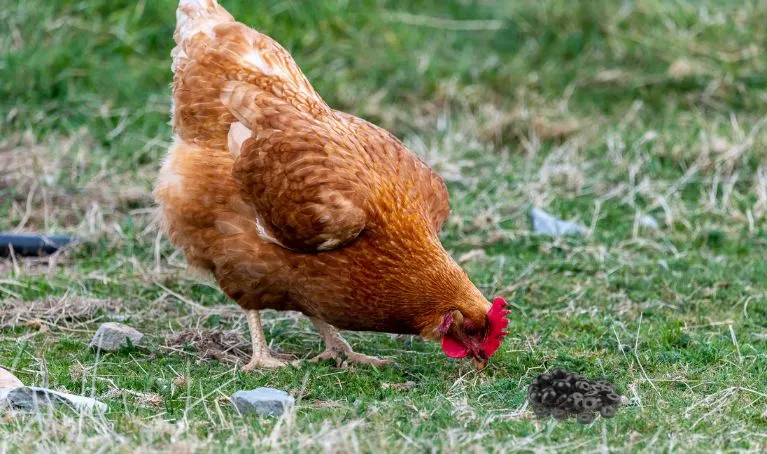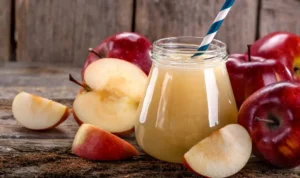Table of Contents
ToggleOne night, while you are unable to sleep, you jump down a rabbit hole with continuous thoughts. And you wonder, can chickens eat black olives? Before you shrug off the query, it is a legitimate concern for many people. Even though chickens can be fed varieties, unfortunately not all human food is safe for them.
As backyard farming continues to rise in popularity, many chicken owners are becoming more conscious of their flock’s diet. The challenge is determining which human foods can safely supplement their chickens’ regular feed. One such question is whether black olives, a common household food, are suitable for chickens.
Today, we explore the different nutritional benefits, letdowns, and feeding tips related to black olives for chicken.
The nutritional value of black olives
Black olives are enriched in monounsaturated fats. Furthermore, the stone fruit contains ample fiber as well. Black olives offer nutrition in the form of vitamin E and iron. However, they are low in potassium and magnesium.
Nonetheless, black olives are necessary for a balanced diet. Here is the nutritional breakdown of black olives according to the United States Department of Agriculture:
| Nutrient | Amount in 100 grams of black olives |
| Calories | Approximately 115 kcal |
| Protein | 0.8 grams |
| Fats | 10.7 grams |
| Saturated fat | 2.3 grams |
| Monounsaturated fat | 7.7 grams |
| Polyunsaturated fat | 0.6 grams |
| Carbohydrates | 6.3 grams |
| Dietary fiber | 3.2 grams |
| Sugars | 0 grams |
| Vitamins | |
| Vitamin E | 3.8 mg (25% of the Daily Value) |
| Vitamin A | 403 IU (8% of the Daily Value) |
| Minerals | |
| Iron | 3.3 mg (18% of the Daily Value) |
| Calcium | 88 mg (9% of the Daily Value) |
| Magnesium | 4 mg (1% of the Daily Value) |
| Potassium | 8 mg (0% of the Daily Value) |
While black olives are high in fats, it’s essential to recognize that chickens require fat in their diet for proper energy levels and insulation, especially during colder months. The monounsaturated fats in black olives, in particular, are considered heart-healthy fats that can aid in maintaining your flock’s energy reserves. However, the balance of fats in their diet should be monitored to prevent obesity and related health issues.
Antioxidants
- The flavonoids in black olives promote antioxidant properties after consumption.
- Black olives also contain different polyphenols, such as hydroxytyrosol and oleuropein. These are powerful compounds with antioxidant qualities that benefit the humans and animals who consume them.
Can you feed black olives to chicken?
Safety Concerns
Are black olives safe for chickens? The answer is they are not toxic. If you feed black olives in a limited amount, they are healthy for the pets. The olives have the perfect amount of minerals, vitamins, and fats for internal well-being. However, you must not feed salted or seasoned black olives to the chicken. The heightened sodium count is very dangerous.
You must wash the black olives thoroughly before presenting the batch to the flock. Moreover, feed olives to the chicken in addition to their primary diet. You can introduce olives in small amounts and note allergy reactions. Always stay cautious so the well-being of your chickens is not compromised.
The benefits
1.Heart Health
Feeding black olives to the chicken improves their cardiovascular activity. It reduces the probability of cardiovascular episodes in the chickens. Moreover, the flock can withstand colder temperatures and winter days because the olives offer heat.
2. Egg quality
Black olives fed to hens for one and half months improve the egg quality. The cholesterol in the yok is better. It is sunshine yellow because the black olives act as a coloring agent.
3. Antioxidant
The black olives will cover the missing antioxidants in the diet. It will safeguard the chicken cells from being damaged by foreign bacteria and viruses. Moreover, the black olives will improve the immune system. The occurrence of infections and diseases in the flock is significantly reduced.
In addition to improving egg quality and cardiovascular health, black olives can provide chickens with enhanced immune system support. The combination of antioxidants and healthy fats creates a protective layer, helping chickens fend off infections and maintain robust health, even in challenging environments or during seasonal changes. For backyard chicken keepers, this means healthier, more productive hens with fewer health concerns.
Risks of black olives in chicken diet
1. High Sodium Content
The brining process adds an unhealthy amount of sodium to the black olives. The sodium can dehydrate the flock. It stresses the kidneys. The canned version can cause renal damage and choline toxicity. Therefore, you must rinse the canned black olives to reduce the amount of salt before adding them to the feed.
2. Are you overfeeding black olives to chickens?
If you are overfeeding black olives to chickens, the flock will suffer from a balanced diet. Moreover, it can cause deficiencies. You can spread black olives after the initial diet but not the primary meal. Moderation is key when it comes to feeding black olives to chickens if you wish to experience health benefits.
3. Digestive problems
Feeding black olives to the chicken in bigger patches can disrupt the digestive system. It can cause diarrhea and fatigue. Therefore, feed black olives in small amounts to keep track of their impact on the digestive system. You can safely prevent adverse outcomes while ensuring excellent gut health in chickens.
Moderation is key when introducing any new food, including black olives, into a chicken’s diet. Feeding your flock too many black olives may lead to nutrient imbalances, impacting their ability to absorb vital minerals from their regular feed. A balanced diet ensures they receive all the necessary vitamins and minerals without overloading their system with unnecessary fats or sodium.
How to feed black olives to chickens?
How to choose the right type of black olives for chicken?
If you are going to feed black olives to chickens, you must choose the fresher option because it does not have the added sodium. On the other hand, ensure you pick the canned black olives with the lowest sodium concentration. Subsequently, wash them a few times to remove the salt.
Fresh olives are organic and do not have preservatives or seasonings. As a result, they are healthier. You will notice subtle differences in canned vs fresh versions in the fried chicken in olive oil recipe as well.
How to prepare black olives for the flock?
- The first step to preparing black olives for chicken is de-pitting them. The pit is a choking hazard for chickens. Therefore, feed chickens with no pits in the black olive.
- Similar to the feed or other foods, you must wash the black olives a few times before serving to the flock. It will eliminate pesticides and contaminants that are present on the skin, making the olives safer for the chickens.
- You may need to chop or cut the black olives into smaller pieces, depending on their size. Mashing them is a good option as well. The extra step will make it easier for the flock to pick and digest the olives.
Guidelines for feeding black olives to chickens
You can feed one to two olives once a week to each chicken in a small flock. The next step is to wait and look for reactions. If the flock tolerates the black olives, you can increase the amount. You can combine the olives with their regular feed. Scattering them in the pen will motivate the flock’s natural foraging instinct.
You can reduce the number of olives if you notice the chickens are unwell. You may notice diarrhea, lethargy, and a strong concentration of smell coming from feces. Remember to give the flock a balanced diet instead of replacing it with black olives only.
It’s important to remember that black olives should only serve as an occasional treat rather than a staple food. Chickens thrive on a diverse diet, which ensures they get a broad range of nutrients necessary for their health. While black olives can offer benefits, variety in treats will keep your chickens happy and healthy, preventing boredom and dietary deficiencies.
Alternative Healthy Treats for Chickens
- If you are not willing to feed black olives to the chicken, you can pick other fruits. Grapes, melons, bananas, and berries have the same nutritional structure. Furthermore, the chickens will enjoy the taste as well.
- Grains are full of fiber that promotes digestive health and better output. You can feed the chickens different barley, wheat, oats, and corn as their regular diet. The grain-based diet will give them sufficient energy and keep the chickens happy.
- Proteins are necessary for muscle development in chickens. In place of olives, you can give the flock different forms of proteins as well. Chicken’s favorites are scrambled eggs, earthworms, crickets, and mealworms. The flock will enjoy the feed as well as the taste.
- Fresh herbs are also an excellent addition to the chicken diet. A feed consisting of cilantro, basil, mint, and parsley is very healthy. Furthermore, the herbs add flavor and the necessary nutrients. You can easily plant the herbs in the backyard or pots for easy access.
- Chickens also enjoy vegetables. You can feed spinach, kale, cucumbers, broccoli, and bell peppers to the flick. The vegetables are very nutritious. You can offer fresh or cooked versions to the chickens.
Time to Wrap Up!
If you have been drinking olive oil before bed, you may think of feeding the source to your flock. Are black olives safe for chickens has still gone unanswered. Black olives are nutritious and healthy for hens if they are given in moderation. The flock will live a happy life and give you lots of eggs to eat or sell.






